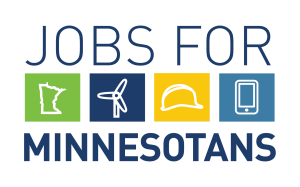Mining Industry’s View: Let Mining Boost State Manufacturing
Duluth News Tribune
Opinion: Hal Quinn
Despite the boon existing iron ore operations provide, Minnesota has yet to come close to realizing the full economic potential of its mineral resources. This is because an outdated and duplicative federal permitting process for minerals mines deters investors from developing projects here and keeps valuable state resources locked in the ground.
The same is true across the U.S. Our nation holds more than $6.2 trillion worth of key minerals that are not being utilized in large part because investors are hesitant to jeopardize their investments in the face of America’s lengthy and uncertain permitting process. Investors instead seek out foreign mineral projects that can be swiftly approved. In the process they pour money into foreign work forces and offshore manufacturing operations.
Read more: http://www.duluthnewstribune.com/event/article/id/274859/group/Opinion/
Walker Pilot Independent
Dean Morrill
While Gov. Mark Dayton was out of state trying to bring jobs to Minnesota, three representatives from Jobs For Minnesotans were in Walker last week touting the strategic metals that are just waiting to be mined in northeast Minnesota.
Christopher Tiedeman and Mike Franklin of Weber Johnson Public Affairs, located in St. Paul, and Jason George, the Legislative and Political director of International Union of Operating Engineers in Minneapolis, said thousands of jobs will be created by mining these metals.
Northeast Minnesota has one of the largest untapped sources of copper, nickel, platinum, palladium, cobalt and gold in the world.
Read more: http://www.walkermn.com/news/article_8386e2fa-f9e4-11e2-bc06-0019bb2963f4.html
Mesabi Daily News
Opinion: Jon Cherry
Once we’re ready begin mining and processing, we’ll hire as many as 360 people to fill stable, good-paying jobs. In addition, the University of Minnesota Duluth estimates that indirect opportunities could generate nearly twice that number of jobs in St. Louis County alone.
Economically, our operations will provide St. Louis County’s economy with a $500 million boost each year – or $10 billion over the 20-year life of the proposed project, according to a study by UMD.
But, as jaw-dropping as these numbers are, we certainly don’t want all of this economic promise to overshadow the environment. As part of state regulations, before we even begin mining, we will set aside funding that is legally protected to ensure that the site will be properly closed, monitored and maintained.
Read more: http://www.virginiamn.com/mine/article_19724722-f95a-11e2-ba4e-0019bb2963f4.html
Just over 150 years ago, people came to northern Minnesota in search of gold.
Instead, they found a more enduring, but no less valuable resource — iron ore.
The rest, of course, is history — Minnesota history shaped by generations of entrepreneurial, daring and hard-working “Iron Rangers.”
Good paying jobs, the ability to raise a family, vibrant communities, quality education and stewardship of the wilderness and environment — these are the past and present values and aspirations that define more than a century of mining throughout Minnesota’s Iron Range.
Read more: http://www.virginiamn.com/mine/article_1dad37ae-f95d-11e2-8a48-0019bb2963f4.html
Rural Minnesotans Less Optimistic About Economy
MPR News
Tom Robertson
Rural Minnesotans are less optimistic about the economy than people in the Twin Cities and other metropolitan areas of the state, according to a new study by the Blandin Foundation.
The Blandin Foundation’s Rural Pulse survey, to be released today, found that while about 40 percent of respondents in urban areas thought there aren’t enough local job opportunities, 56 percent of rural Minnesotans thought so.
“Recovery hasn’t made it to all people,” said Kathleen Annette, president of the Grand Rapids-based foundation. “And there are those in rural communities that have less optimism. And those are primarily those that are making less than $35,000 a year, and they’re older than the age of 35.” Read more: http://minnesota.publicradio.org/display/web/2013/05/08/news/rural-minnesotans
